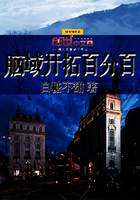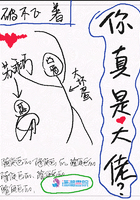An enterprise such as the truands were now attempting against Notre-Dame was by no means an uncommon occurrence in the Middle Ages.What we now call'police'did not then exist.In the populous cities,particularly in the capitals,there was no united central power regulating the whole.Feudalism had shaped these great municipalities after an absurd fashion.A city was a collection of innumerable seigneuries,cutting it up into divisions of all shapes and sizes;hence its crowd of contradictory police establishments,or rather no police at all.In Paris,for instance,independently of the hundred and forty-one feudal lords claiming manorial dues,there were twenty-five claiming justiciary and manorial rights,from the Bishop of Paris,who possessed a hundred and five streets,to the Prior of Notre-Dame des Champs,who had only four.All these feudal justiciaries recognised only nominally the paramount authority of the King.All exercised right of highway,all were their own masters.Louis XI—that indefatigable workman,who commenced on so large a scale the demolition of the feudal edifice,continued by Richelieu and Louis XIV to the advantage of royalty,and completed by Mirabeau to the people—Louis XI had done his utmost to break up this network of seigneuries which covered Paris,by casting violently athwart it two or three ordinances of general police.Thus,in 1465,we find the inhabitants ordered to put lighted candles in their windows at nightfall,and to shut up their dogs on pain of the halter;in the same year,the order to bar the streets at night with iron chains,and the prohibition against their carrying daggers or any other offensive weapon in the streets at night.But in a short time all these attempts at municipal legislation fell into disuse;the citizens let the candles at their windows be extinguished by the wind and their dogs roam at large;the iron chains were only stretched across the street in case of siege,and the prohibition against carrying weapons brought about no other changes than converting the Rue Coupe-Gueule into Coupe-Gorge;which,to be sure,is a clear evidence of progress.The old framework of the feudal jurisdictions remained standing—an immense accumulation of bailiwicks and seigneuries,crossing one another in all directions through the length and breadth of the city,embarrassing,entangling,overlapping one another—a useless thicket of watches,counter-watches,and out-watches,through the very midst of which stalked brigandage,rapine,and sedition,sword in hand.Under such condition of disorder,therefore,it excited no very great remark if a part of the populace laid violent hands on a palace,a mansion,or any ordinary dwelling-house in the most populated quarters of the city.In most cases the neighbours did not interfere in the matter unless the plundering extended to themselves.They stopped their ears to the report of the musketry,closed their shutters,barricaded their doors,and let the struggle exhaust itself with or without the assistance of the watch,and the next day it would be quietly said in Paris:'night étienne Barbette's house was broken into,'or'The Marshal de Clermont was attacked,'etc.Hence,not only the royal residences,the Louvre,the Palais,the Bastille,the Tournelles,but the mansions of the nobility,such as the Petit-Bourbon,the Htel de Sens,the Htel d'Angoulême,and so on,had their battlemented walls and their fortified turrets over the entrances.The churches were protected by their sanctity.Some of them,nevertheless—among which was not Notre-Dame—were fortified.The Abbey of Saint-Germain-des-Prés was castellated like a baronial mansion,and more copper had been used there for bombards than for bells.These fortifications were still to be seen in 1610;now scarcely the church remains.
But to return to Notre-Dame.
The first arrangements completed—and it must be said,to the honour of the truand discipline,that Clopin's orders were carried out in silence and with admirable precision—the worthy leader mounted the parapet of the Parvis,turned his face to Notre-Dame,and raising his harsh and churlish voice while he shook his torch—the light of which flaring in the wind and veiled at intervals by its own smoke,made the dark front of the Cathedral vanish and reappear by turns—
'Unto thee,'he cried,'Louis de Beaumont,Bishop of Paris,Councillor in the Court of Parliament,thus say I,Clopin Trouillefou,King of Tunis,Grand C re,Prince of Argot,Bishop of the Fools:Our sister,falsely condemned for witchcraft,has taken refuge in thy church.Thou art bound to accord her shelter and safeguard;but now the Parliament designs to take her thence,and thou consentest thereunto,so that she would be hanged to-morrow at the Grève if God and the truands were not at hand.We come to thee,then,Bishop.If thy church is sacred,our sister is so too;if our sister is not sacred,neither is thy church.Wherefore we summon thee to give up the maid if thou wouldst save thy church,or we will take the maid ourselves and plunder the church:which will most certainly happen.In token whereof I here set up my banner.And so God help thee,Bishop of Paris!'
Unfortunately Quasimodo could not hear these words,which were delivered with a sort of savage and morose dignity.A Vagabond handed Clopin his banner,which he gravely planted between two paving-stones.It was a pitchfork on which hung a gory piece of carrion.
This done,the King of Tunis turned about and cast his eye over his army,a ferocious multitude whose eyes gleamed almost as savagely as their pikes.After a moment's pause—'Forward,lads!'he cried.'To your work,housebreakers!'















